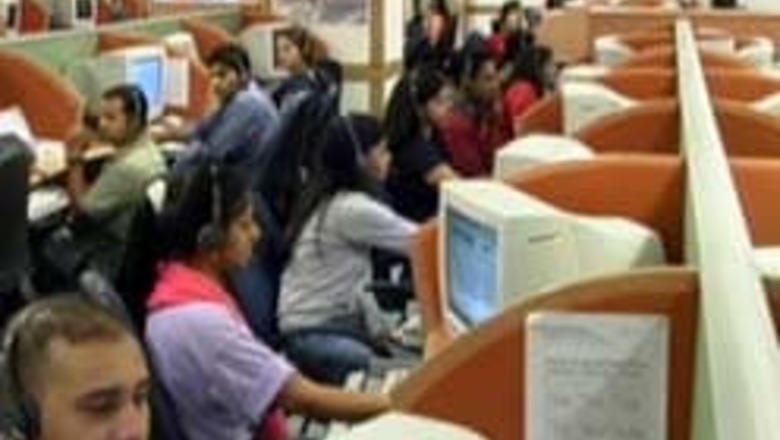
views
Bangalore: There is a fair chance some of your most critical private data is flitting at some time or other through Bangalore, the world's outsourcing capital - in which case it strays into the patch of cyber-cop C K Hari Singh.
On the face of it the affable policemen, who has spent most of his career hunting down rapists and murderers, makes an unlikely investigator into the more intangible field of digital data theft.
"I am not used to using computers. I prefer my handwriting," the senior investigative officer cheerfully admits. Hari Singh and his colleagues at Bangalore Cyber Crime Police Station presently work a rather thankless beat, with security within India's so-called business process outsourcing (BPO) industry coming under increasing scrutiny.
A Bangalore employee of HSBC Holdings was arrested by Hari Singh's team in June, allegedly a member of a criminal network in both India and the UK that defrauded British bank customers of a reported 230,000 pounds ($414,000).
The case - which the cyber crime unit says is the first and only such theft reported at a Bangalore call centre - is still under investigation.
And, in October, a documentary by Britain's Channel 4 said it found criminal networks that were stealing thousands of British consumers' banking details from both UK and Indian call centres and selling them in bulk at $15 to $55 per customer.
But Hari Singh's boss - and no relation - Deputy Inspector General Sanjay Vir Singh says these are isolated incidents played up by Western media.
"Your data is as safe here (in Bangalore) as if it was in your own pocket," he promises, sitting in an office furnished with a 1970s-style chintzy sofa, faded floral curtains and a fish tank. Security-conscious big business seems to believe him.
The offshoring of jobs to India continues unabated, with outsourcing industry revenues up 37 percent to $6.2 billion in the 2005-06 financial year, and expected to rise to $8-8.5 billion in 2006-07 according to software industry body NASSCOM.
In a statement, HSBC said that security in its India operations are "at least equal to those we achieve in other nations".
Since not everyone in Vir Singh's 11-strong team of investigative police officers is especially computer-savvy, they have six eager young forensic computer engineers a couple of years out of college to help out when things get technical.
The technicians leave their shoes at the door of an intensely air-conditioned room to do the fiddly analysis of seized hard drives using expensive new equipment, looking for data evidence that might secure a conviction. Vir Singh says that until very recently, his team would wait until a crime had been committed before springing into action. "But now everyone wants us to be more proactive," he said. And so the cyber crime unit is expanding.
A new five-million-rupee ($110,000) training centre is being built to coach business process outsourcing managers and police officers in cyber crime prevention, with much of the funding coming from businesses involved in the outsourcing industry.
For now, the cyber crime unit isn't exactly snowed under: its radiation-proof safe usually only has three or four seized hard drives inside it at any time. Typically the station investigates about 40 cases a year, most of them involving online pornography.
But business leaders say that is because companies are already ploughing back significant sums into security at the call centres in India. "Companies are going overboard with their security," said head of a local branch of software industry members, Lathika Pai.
Pradeep Narayanan, chief delivery officer at 24/7 Customer, one of the city's larger call centres, is happy to show journalists the measures they are taking, which are fairly typical of the larger-scale end of the industry. Background checks go back as far as seven years for new hires. Metal detector-waving security guards make sure no pens, pencils, mobile phones or other recording devices enter the call centres' floor.
Free transport between home and work, free food, an onsite gym, library, music practice room, and ever-increasing salaries are all designed to keep staff happy - and loyal. "I do not think we're going overboard," said Narayanan. "What we do is absolutely required for the kind of business we're in."




















Comments
0 comment